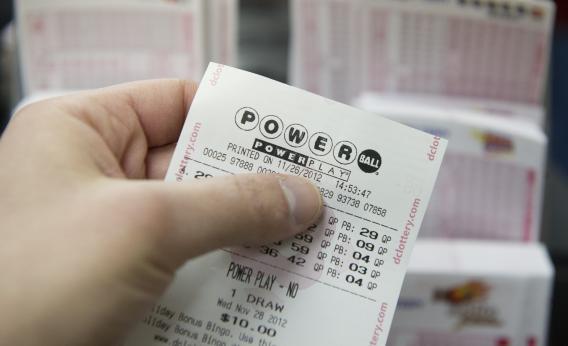With this evening’s Powerball jackpot at an unprecedented $550 million (and rising), lots of people are dreaming of what they’d do if they won the money. Others are dreaming about how to steal that money. Here’s an FAQ for those of you with theft on your minds.
Will I win the lottery?
No.
Can I rig the lottery?
You can try, but it’ll require a lot of advance planning, and you will probably be caught. In 1980, Nick Perry, the host of Pennsylvania’s televised lottery drawings, conspired with several other people to rig the Daily Number game. The winning numbers were drawn via Ping-Pong balls sucked out of an air machine; Perry and his gang tampered with the balls so that certain numbers were more likely to rise to the top, and then bet heavily on the favored numbers. (The winning combination was 6-6-6; people eventually called the scheme the “Triple Six Fix.”) Though they won $3.5 million, their triumph was short-lived—the heavy betting on certain number combinations raised suspicions, and Perry was eventually arrested and sentenced to seven years in prison. So that’s the bad news. On the positive side, David Stern rigs the NBA draft lottery every damn year and hasn’t yet been caught. So there’s still hope!
Can I alter my ticket to make it look like I won the lottery?
If you are adept with computers, then maybe. Richard Knowlton ran the computer system for the Kansas Lottery; in 2000, he was caught using those computers to turn dozens of losing scratch tickets into $63,000 worth of winning tickets. Knowlton claimed that he did so to highlight flaws in the lottery’s security system, which is perhaps why he was only sentenced to 60 days in jail. This is a key point: If you are going to try to falsify your ticket, it helps to be a white-hat hacker who is doing so in order to prove a point.
Otherwise, altering your ticket is a horrible idea, and you should only attempt to redeem a fake ticket at a convenience store where the computers are down and the clerks are of subnormal intelligence. Attempting to falsify the numbers on the face of the ticket won’t work, because the real data is generally encoded elsewhere on the ticket. Of course, this hasn’t stopped people from trying. Last year, a Houston man claimed to have won a Texas Lottery scratch-and-win game that would pay him $1,000 per week for the rest of his life. He was lying: According to KHOU, “a ‘5’ and a ‘4’ had been cut out and put into different positions on the ticket to make it look like a winner. The investigator said the numbers were secured with Scotch tape.” This raises another key point: If you’re going to try to forge a winning lottery ticket, don’t use Scotch tape.
Can I grift the eventual winner?
Yes. Earlier this week, I mentioned Jack Whittaker, the West Virginia man who won a $314.9 million Powerball jackpot, which promptly ruined his life. Whittaker started flashing his cash in places where he shouldn’t; he and his family turned to drink and drugs. In a 2005 article for GQ, Paige Williams writes about how one day Whittaker was “another respectable old dude in a cowboy hat living his West Virginia life, and the next he was sitting on a curb outside a titty bar, complaining to the cops that an ex-stripper named Misty and her boyfriend drugged his cocktail, busted out the window of his truck, and made off with a half-million of his dollars.” We’ve all been there.
Whittaker’s an extreme example, but plenty of lottery winners become overwhelmed by their good fortune, making them extremely susceptible to thieves and con artists. Curtis Sharp, dubbed the “Five Million Dollar Man” after winning that amount in the New York Lottery in 1982, was a larger-than-life character who couldn’t give his money away fast enough. “I had a guy who walked with a limp, and he wanted me to give him money for a house,” Sharp remembered in Matthew Sweeney’s book The Lottery Wars. “We found out this man owned three houses. But here comes ol’ softie Curtis. People just try to get you when you are friendly, so you’ve got to be careful and start screening people, which I don’t like doing.”
Sometimes, you can fleece the winners before they know they’ve won. In 2009, a man named Willis Willis went to a Texas convenience store to see if any of his Mega Millions tickets were winners. The clerk, Pankaj Joshi, determined that one of them was a million-dollar winner; Joshi promptly stole the ticket, claimed the jackpot for himself, and fled to Nepal. Willis eventually got some of the money back, and was remarkably sanguine about the whole experience, telling Joshi to “have a nice day, wherever you are.” Probably in Nepal, spending down $600,000 of somebody else’s money, living the lottery grifter’s dream.
